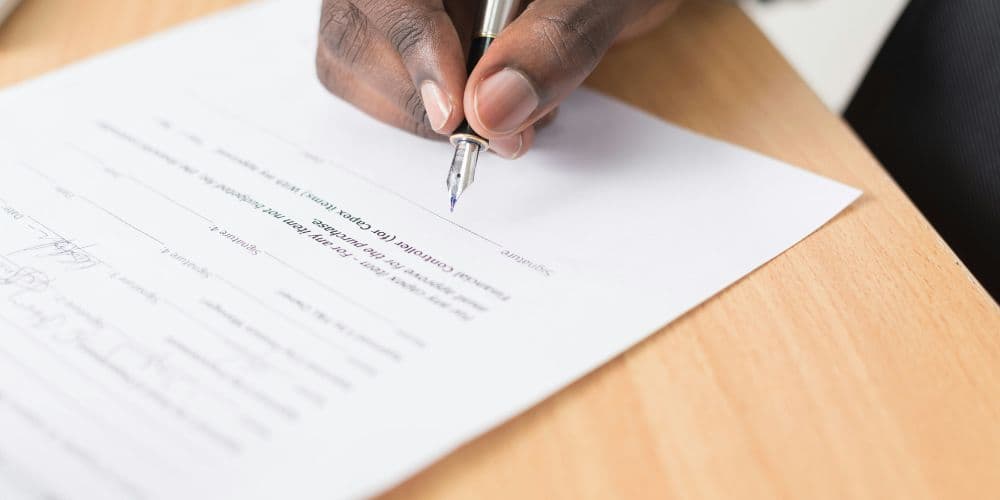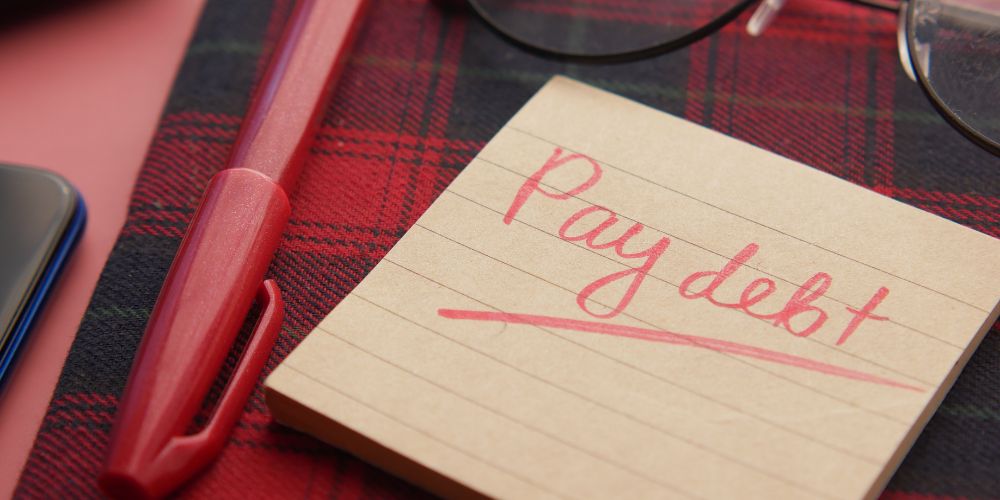Buying a house is a daunting process. One of the first big steps is getting approved for a mortgage.
In general, the biggest factor in getting approved for a mortgage and the amount you will be approved for is the amount of debt you have.
If you have debt
Work on paying it off
Having debt may make it easier to get a mortgage (although this doesn’t mean debt is good to have) because you have a credit score.
However, if you have too much debt, it can inhibit your ability to get a loan on doable terms.
Understand Your Debt - To - Income Ratio
This is just what it sounds like – how much debt you have relative to your income.
The lower your debt-to-income ratio, the more easily your request will be approved with favorable terms.
There are increased expenses with a house, so having as much financial bandwidth as possible will decrease some of the stress around this huge purchase.
Save for a down payment
Saving 15-20% is ideal as you will avoid Private Mortgage Insurance (PMI).
You can often put down as little as 2% when buying a home, but you will be paying a lot more for your house in the long run.
This is because you will have to have PMI until you have 20% equity, plus the added interest of more mortgage payments.
Your down payment can also affect your interest rate.
Private Mortgage Insurance
What is Private Mortgage Insurance?
Essentially, the lender makes you pay extra as insurance to make sure you will pay on the loan.
It is insurance to the lender (not you!) in case you start to default on your payments. It does not protect you from foreclosure.
Why you should avoid PMI
I totally understand wanting to jump in and buy a house, especially if rent feels like throwing money away.
However, saving up enough for a down payment to avoid PMI will save you a lot of money in the long run.
Set your own budget for a house
It’s exciting to finally get moving on buying a house. However, I want to encourage you to be the one to set the budget for your mortgage.
The lender will give you the max of your capacity on paper.
You need to decide for yourself what you can afford in your budget.
Check out an online mortgage calculator to get an idea of how much you will be spending over the life of the loan. This can be a very sobering number when you look at how much goes toward interest alone!
Decide on Mortgage terms
30 year
The interest rate is generally higher on a 30-year mortgage. Between the higher interest rate and the longer term, you will end up paying much more in interest than on a 15-year loan.
However, a 30-year term can give you more wiggle room in your budget as your monthly mortgage payment will be lower.
Unlike other types of debt, property tends to appreciate. While having as little debt as possible is ideal, buying property is often going to be a good move if done wisely.
15 year
This is an ideal situation. With a 15-year mortgage, you will likely have a lower interest rate and pay a lot less in interest over the life of the loan.
However, your payment might be tighter on the budget.
Fixed-rate or variable-rate
Variable rate/Adjustable Rate
Great when interest rates are low, but bad when they are high. Variable-rate loans fluctuate yearly with interest rates while adjustable-rate loans often have a period of a fixed rate followed by a period of variable rates.
These can be appealing if you think interest rates will fall. However, there is an unpredictable nature to them which can come with more risk.
Fixed-rate
You know what your rate will be. If you get a mortgage when rates are higher, you can always refinance if they come down.
Don’t Be Afraid to Ask Questions
Buying a house is likely the biggest purchase you will ever make and you only do it a couple of times in your lifetime.
So, it makes sense you will not have all the answers and that a lot of the terms and the process in general will be confusing.
If anything does not make sense, ask your loan officer about it.
Questions you may need to ask:
- Can you outline what the house-buying process with the lender looks like?
- How is insurance handled? Do you put it in escrow or do I pay directly?
- What is the threshold for Private Mortgage Insurance? At what point does it “fall off”? Is there any paperwork I will need to complete for it?
- Is there an early pay-off penalty?

Credit score
Important, but ultimately your ability to pay is the most important factor (i.e. down payment and future payments).
It is worthwhile to review your credit report to see if there are any errors. Otherwise, keep paying down your debts and create a debt-payoff plan.
Bulk Pre-Approvals
Your credit score will take a hit when you get a pre-approval from a lender.
I highly recommend getting pre-approvals from multiple lenders. But you won’t want to take a hit on your credit score each time.
There is a provision from credit reporting agencies where multiple credit pulls for the same purpose count as one credit pull.
However, the multiple credit pulls have to occur within a fairly short time period (it changes between credit reporting agencies but usually within 2 weeks is safe – double check before you begin the process)
To make the most of this window, get copies of all of your information and documentation you will need.
Also, figure out what lenders you want to get pre-approval letters from. Collect all the info in a spreadsheet. Some lenders will need additional documentation compared to other lenders.
Set aside a time over a week to call the lenders. Many can complete the process over the phone, but some may require you to meet in person.
Once you have your pre-approval letters, run the offers through a mortgage interest calculator. This will give you a decent comparison of the best offer.
Some lenders may try to sell you on low closing costs. While this is great in the short run, generally a lower interest rate is going to save you the most money over the life of the loan.
If you’ve never had debt
Secured Credit Card
I never had debt before getting a mortgage. We knew that we wanted to buy a house in the next couple of years, so I decided to get a secured card from my bank to get a credit score.
There was an annual fee and a deposit of $300 (to act as collateral) on the card. I got the $300 back in full when I closed the card. I didn’t like this situation since there was an annual fee, but I did it since I didn’t have a credit score.
My husband had a credit score from paying off a couple of student loans, so that did help us.
Manual Underwriting
The underwriting process is done by a human, not an algorithm.
If you don’t have a credit history, your loan may not be approved through the normal process because credit history is part of the process.
I didn’t realize this at the time I personally got a mortgage, but it may be worth looking into!


